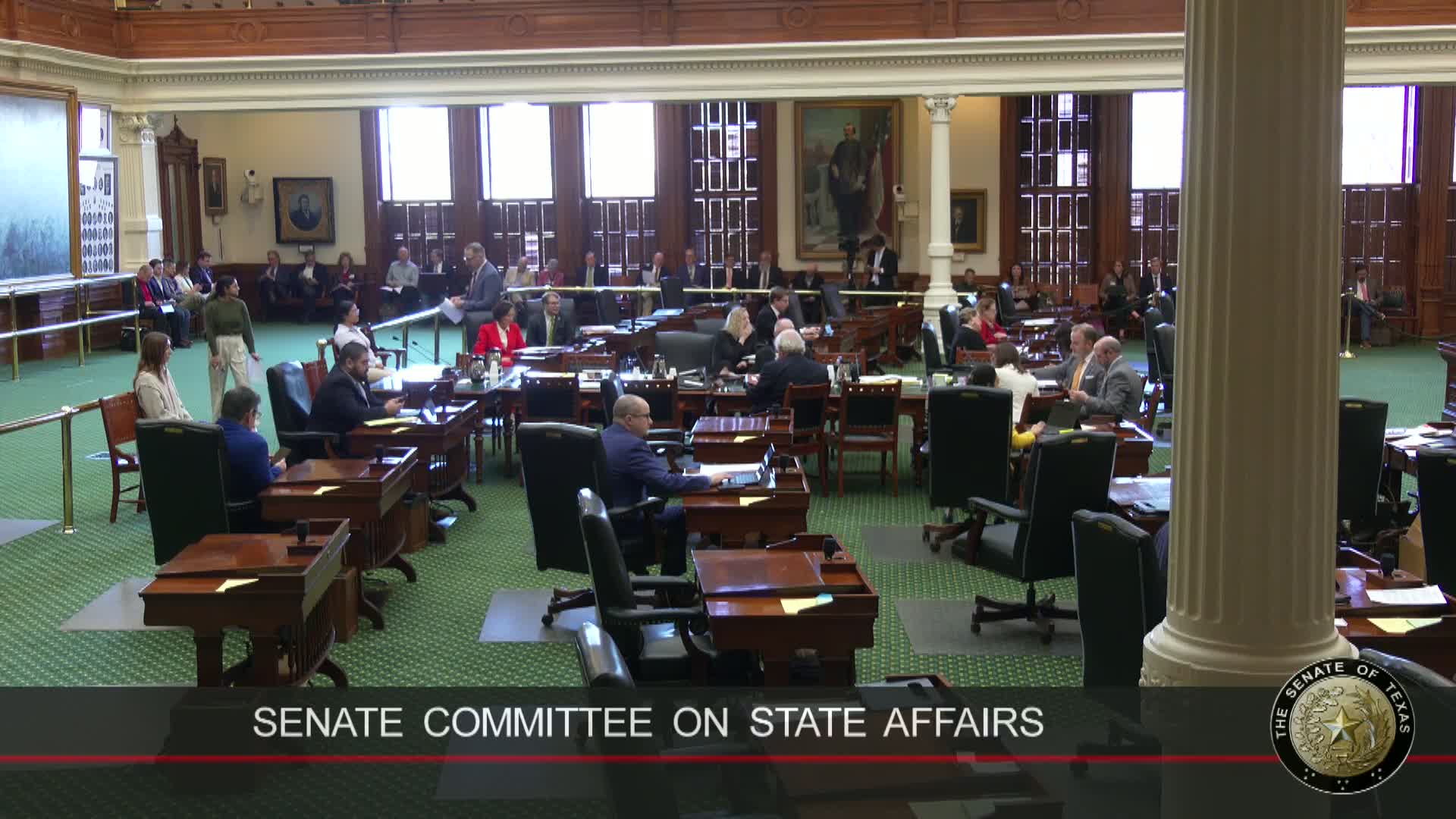Supreme Court justice urges statute be aligned with constitution to remove writ jurisdiction ambiguity
Get AI-powered insights, summaries, and transcripts
Subscribe
Summary
Senator Hughes introduced Senate Bill 311 and told the Committee on State Affairs that it would amend Texas Government Code section 22.002(a) to clarify the Supreme Court of Texas—s original-writ authority so the statute tracks Article V, Section 3(a) of the Texas Constitution.
Senator Hughes introduced Senate Bill 311 and told the Committee on State Affairs that it would amend Texas Government Code section 22.002(a) to clarify the Supreme Court of Texas—s original-writ authority so the statute tracks Article V, Section 3(a) of the Texas Constitution.
Justice Evan Young of the Supreme Court of Texas, appearing as a resource witness, said SB 311 "is a simple bill that conforms the text of section 22.002(a) of the government code to the text of article 5, section 3(a) of the constitution." He argued clarity in jurisdictional statutes is important because the present statute both "prescribes and proscribes" and can create uncertainty about whether the Supreme Court has authority to issue writs against particular entities or lower courts. Young told senators mandamus is an "extraordinary" remedy used only when a clear abuse of discretion exists and stressed that SB 311 would not change the standards for granting mandamus, only whom the writ may be directed against.
Nut graf: SB 311 would simplify and align the statutory language governing the Supreme Court—s original writ power with the constitution, removing ambiguities about which lower courts or entities may be the subject of mandamus or other original writs. Supporters said the bill provides clarity without changing mandamus standards; opponents at the hearing raised constitutional and practical concerns in related bills but the transcript records no direct opponent testimony against SB 311.
Chris Hilton, representing proponents, yielded time to Justice Young and added that the bill "does nothing to change any of those procedures. It doesn't do anything to make a writ of mandamus easier to obtain. It just clarifies that all the lower courts are subject to the Supreme Court of Texas's authority." After questions and answers clarifying mandamus standards and the bill's scope, the committee closed public testimony and left the bill pending.
Ending: The bill remains pending with public testimony closed; no committee vote was recorded.
